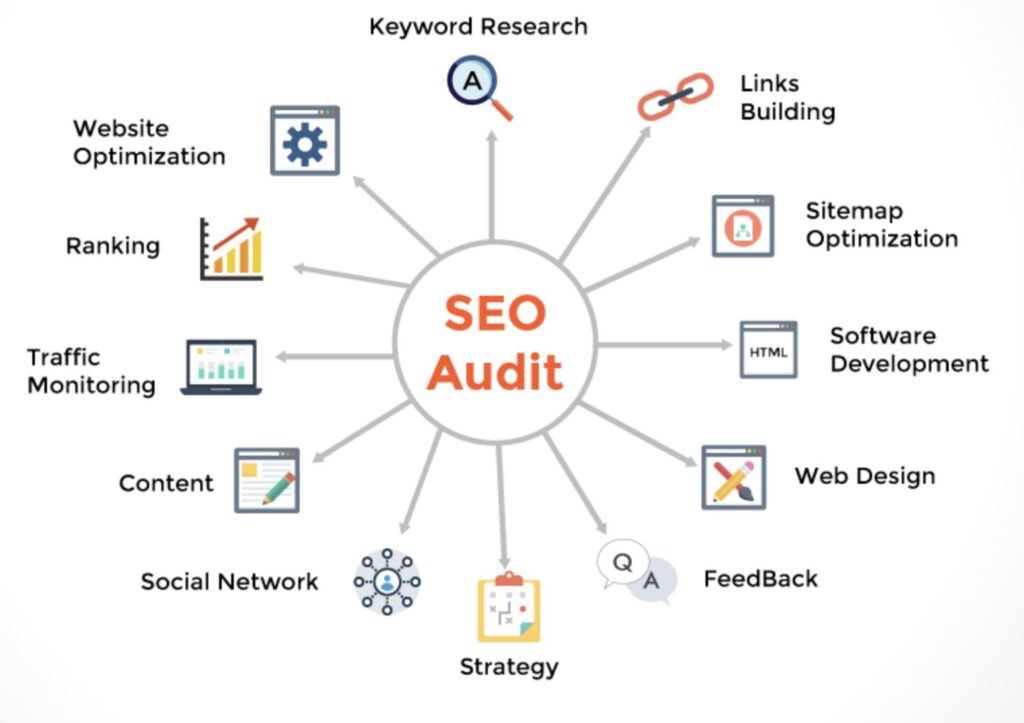Technical SEO
Why do we need technical SEO?
Technical SEO refers to the optimization of the technical aspects of a website in order to improve its search engine visibility and ranking. It is essential because search engines like Google use complex algorithms to crawl, index, and rank websites based on a variety of factors, including technical aspects.
Some of the important technical SEO factors that can impact a website’s ranking include website speed and performance, mobile responsiveness, website architecture, URL structure, website security, structured data, sitemaps, and canonicalization.
By optimizing these technical aspects of a website, search engines can better understand and index the website’s content, resulting in improved search engine visibility and ranking. In addition, technical SEO can also improve the user experience of a website by making it faster, more mobile-friendly, and more secure.
Technical SEO is an important part of any comprehensive SEO strategy and can have a significant impact on a website’s search engine visibility, traffic, and ultimately, its success.

Site Speed: Website speed is an important factor for both user experience and search engine rankings. Optimizing site speed involves minimizing server response time, reducing file sizes, leveraging browser caching, and using a content delivery network (CDN).
Website Crawling: Search engines use web crawlers to index websites. Optimizing website crawling involves ensuring that search engine crawlers can access and crawl all important pages on the site, including avoiding broken links, fixing crawl errors, and using robots.txt and XML sitemaps.
Mobile-first Indexing: With Google’s mobile-first indexing, mobile versions of websites are given priority in search engine rankings. Optimizing for mobile-first indexing involves making sure that the mobile version of the website is optimized for speed, user experience, and content.
International SEO: If a website has international visitors, optimizing for international SEO involves implementing hreflang tags to signal which language and country a page is intended for, creating country-specific versions of the website, and ensuring that the website is accessible in all countries.
Mobile Responsiveness: With the increase in mobile internet usage, it’s important for websites to be mobile-friendly. Optimizing for mobile involves using responsive design, optimizing for mobile page speed, and avoiding the use of Flash.
URL Structure: The structure of a website’s URLs can impact its search engine rankings. Optimizing URLs involves creating descriptive, readable, and keyword-rich URLs that accurately reflect the content of the page.
Website Security: Websites with security issues such as malware, hacking, and phishing attacks can be penalized by search engines. Optimizing website security involves using HTTPS, updating software, and regularly scanning for security vulnerabilities.
Structured Data: Structured data helps search engines better understand the content of a website. Optimizing structured data involves implementing schema markup, including structured data in XML sitemaps, and using JSON-LD.
Sitemaps: Sitemaps provide search engines with a list of all the pages on a website. Optimizing sitemaps involves submitting them to search engines, keeping them up to date, and ensuring they follow best practices.
Canonicalization: Canonicalization involves ensuring that search engines only index the preferred version of a URL. Optimizing canonicalization involves using canonical tags, redirecting duplicate content, and avoiding duplicate content issues.
Technical SEO is an important part of optimizing a website for search engines and ensuring that users have a positive experience on the site. By optimizing these technical aspects, websites can improve their search engine rankings and ultimately drive more traffic and conversions.

Rich Snippets: Rich snippets provide additional information in search engine results, such as reviews, ratings, and images. Optimizing for rich snippets involves implementing structured data, optimizing page titles and descriptions, and using schema markup.
Accessibility: Accessibility is important for users with disabilities, and it can also impact search engine rankings. Optimizing for accessibility involves using alt text for images, ensuring that content can be navigated using a keyboard, and avoiding the use of flashing or blinking elements.
Site Architecture: The architecture of a website can impact both user experience and search engine rankings. Optimizing site architecture involves creating a clear hierarchy of pages, using breadcrumb navigation, and ensuring that internal links are structured logically and appropriately.
Technical SEO involves optimizing a wide range of technical aspects of a website to improve search engine visibility, user experience, and ultimately drive more traffic and conversions. By implementing best practices for technical SEO, websites can improve their search engine rankings and attract more visitors to the site.






